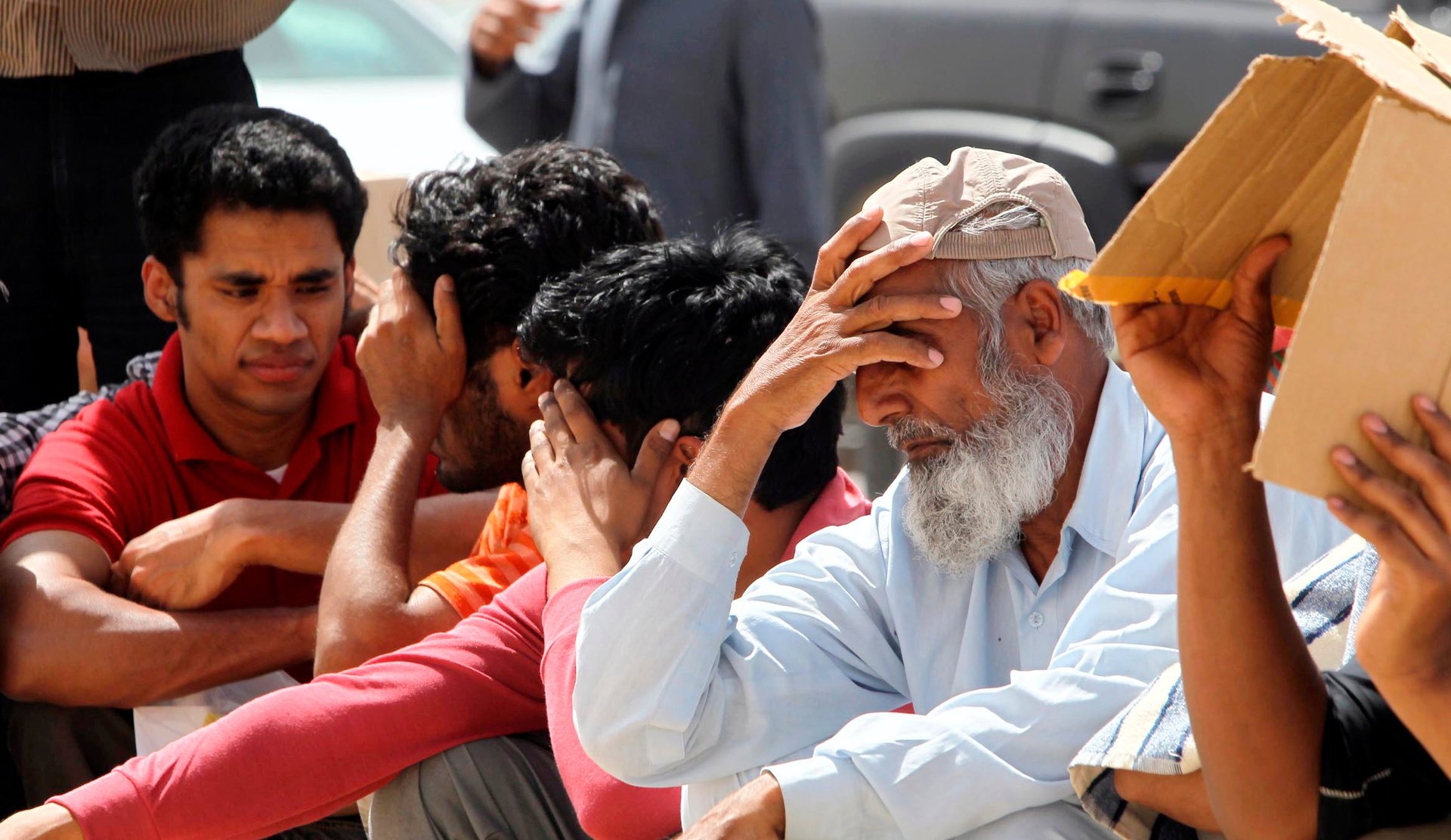Saudi Arabia’s crackdown on illegal immigrants is a boon for local businesses
Saudi Arabia’s crackdown on illegal foreign workers is proving to be a blessing in disguise for local companies. In an effort to boost the local economy, Saudi authorities have given illegal workers until July 3 to find a sponsored job or risk being fined or deported. As a result, expatriates have been willing to take up jobs with lower salaries just to stay in Saudi Arabia. Since April, 1.5 million foreign workers have managed to change status, and that is estimated to have saved local businesses 15 billion Saudi riyals ($4 billion), according to the Saudi labor ministry.


Saudi Arabia’s crackdown on illegal foreign workers is proving to be a blessing in disguise for local companies. In an effort to boost the local economy, Saudi authorities have given illegal workers until July 3 to find a sponsored job or risk being fined or deported. As a result, expatriates have been willing to take up jobs with lower salaries just to stay in Saudi Arabia. Since April, 1.5 million foreign workers have managed to change status, and that is estimated to have saved local businesses 15 billion Saudi riyals ($4 billion), according to the Saudi labor ministry.
Arab News reports that businesses are now paying new foreign employees salaries that are only around one-fifth of the pre-crackdown levels. Companies are also saving around 10,000 Saudi riyals per foreign worker, because they don’t have to pay travel costs or recruitment fees for workers who are already in the country without proper documentation. Most of Saudi Arabia’s immigrants hail from Pakistan, Indonesia, India and Sri Lanka, and they tend to go into construction, retail, and low-end service jobs like household work. So far, 180,000 expats have left the country under a three-month amnesty program, which allows workers to fix their papers or leave the country without paying fines.
The push is part of Abdullah bin Abdul Aziz’s $130 billion stimulus plan to create local jobs and prevent wave of unrest that has swept across other Arab countries. As part of that effort, Saudi Arabia has started enforcing the Nitaqat law, which mandates that local firms hire one Saudi national for every 10 migrant workers. Unemployment among Saudi nationals is 12%, while around 30% of the nation’s youth are estimated to be without jobs.
According to Saudi law, foreigners must be sponsored by employer and work only in the field registered in residency papers. Saudi Arabia has about 9.4 million legal foreign workers and a population of 29.2 million. Estimates of the number of undocumented workers vary from two million to three million. 575,000 illegal workers were deported in 2012, while 200,000 were expelled in the first three months of this year, before the Saudi authorities announced the three-month amnesty program.
Another choice proposal: the Saudi ministry of labor is considering nationalizing its retail sector—which would generate an estimated 600,000 jobs for Saudi nationals. Other Gulf nations including Kuwait and Bahrain too have followed Saudi’s lead announcing their own crack down on illegal workers.